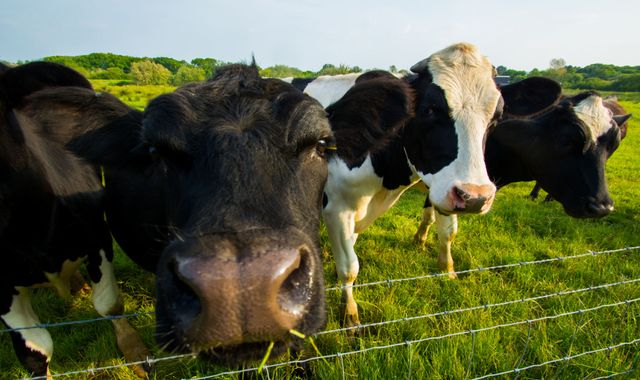‘Veganuary’ could save a million animals in one month, charity says
Written by News on 01/01/2020
A vegan charity which encourages people to stop eating meat in January says more than one million animals could be saved throughout the month.


Veganuary estimates that 350,000 people will attempt a vegan diet in January 2020, in what is the seventh year of the challenge.
The organisation also claims the environmental impact of so many people going vegan will be significant.
James Poore, an environmental researcher at the University of Oxford, produced the figures.
He said: “We calculated the environmental impacts of the current diet and the vegan diet for every country globally using the latest environmental impact data – this includes everything from agriculture to food transport.
“For the 350,000 people expected to take part in Veganuary, this would save as much greenhouse gas emissions as moving 160,000 cars from the road or about 400,000 to 500,000 single flights from London to Berlin.”
Veganuary says it hopes 2020 will see even more people stop eating meat and switch to a plant-based diet.
It says that in 2019, more than a quarter of a million people took the challenge and says more than 200 new vegan products and menus were launched by supermarkets and restaurants.
Veganism – which means not eating any food product derived from animals – is growing in popularity.
The UK launched more vegan products than any other nation in 2018, according to the Vegan Society.
But nutritionist Becky Graham told Sky News despite health benefits, a vegan diet cannot provide everything a human is used to.
She said: “It’s down to the individual – but if you decide not to eat meat you can find the nutrients to replace it. However, looking at following a vegan diet long term, there are certain nutrients that definitely would be missing out on.
“Key things like iron, B12, perhaps vitamin D as well. All those are found in animal products but not in plant products to the same extent – or at all to be honest.”
Veganuary organisers say going vegan is healthier and more environmentally friendly.
But, unsurprisingly, one industry not convinced is farming.
James Small, who runs Warren Farm in North Somerset, says quality meat should still be part of our diet.
He told Sky News: “When people are looking to make those choices, not only for themselves but for the families, they really look closely at what they are going to be buying and why they’re going to be buying it.
“What we do see is a lot of vegan food is heavily processed and has been brought from all around the world and in today’s climate where we’re starting to look at climate change I think we need to start looking at what we can produce at home and looking for a good sensible and balanced diet of which I believe red meat and meat proteins play an absolutely essential role.”
As well as more traditional vegan dishes there are a growing number of take away-style vegan foods.
Sowl Fuud is Gloucester’s first 100% vegan takeaway, serving plant-based equivalents of kebabs, burgers and friend chicken.
Owner Reuben Lawrence says his customers are becoming more mainstream.
He said: “In the last 18 months, people are definitely more open to veganism, more open to what they are putting in their body.
“We’ve got converters, most of our customers are meat eaters, believe it or not.
“They just love the food, they love the change.
“One of the most said phrases is they feel light, they don’t feel heavy after eating the food so that’s what’s bringing them back in.”
(c) Sky News 2020: ‘Veganuary’ could save a million animals in one month, charity says







